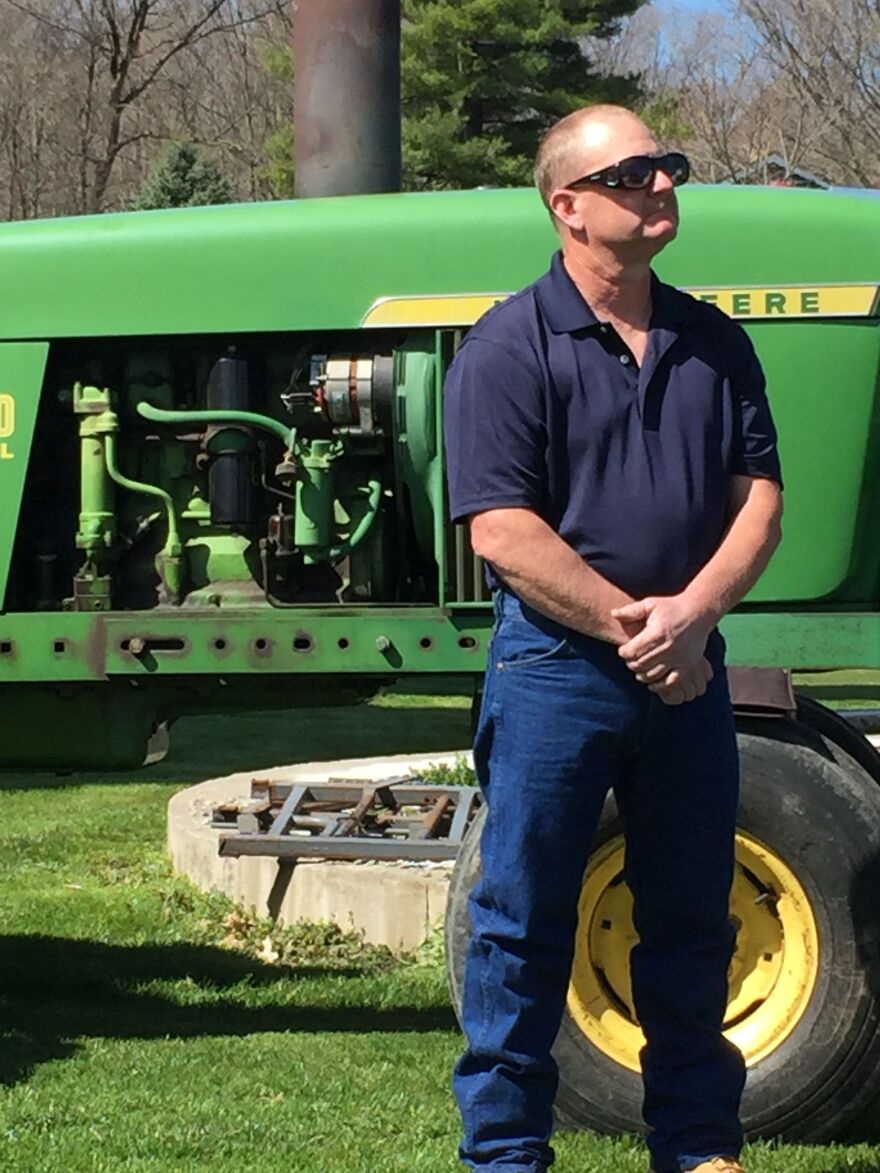Planting season is getting underway in central New York. And for farmers it means another year when the changing climate can make or break a growing season. But farmers aren’t sitting still when it comes to dealing with the more severe weather that comes along with a warming climate.
Water is the lifeblood of a farm. Not enough and crops wither and die. Too much, and they are swept away in a soggy torrent of twisted roots and topsoil.
“It’s just devastating to watch your crop wash after you’ve just planted it and it’s coming out of the ground,” said Dan Annable, who operates a 500-acre farm in Marietta. His farm is a rolling stretch of green hills and rocky gullies in southern Onondaga County. He blames climate change for a new water normal.

"They talk about the 100-year storm, when you get five inches of rain in an hour. That seems to happen every other year now. It’s more like a two-year storm,” said Annable.
Michael Hoffman, executive director of the Cornell Institute for Climate Change and Agriculture, says heavy precipitation events are up 72 percent in central New York. His institute leads an effort to help farmers become more resilient in the face of alternately hotter, colder, wetter and drier weather.
“We have more extreme weather, longer growing seasons that are warmer, warmer winters. All of these things have implications and direct impacts on farming. We have more pests than we used to have in the past, because they can survive over winter. So lots of challenges,” said Hoffman.
So the center works with farmers, offering education and ideas that can reduce the impact of climate change. For example, one researcher is figuring out how cover crops, planted between corn stalks when they are about knee high, can keep heavy rain events from washing the tender plants away.
"Now that we get these downpours, there’s something there to hold the soil in place, and the nutrients in place. Then when you harvest, you have a cover crop in place, that could be a forage if you wanted to, obviously turn in and return carbon back to the soil,” said Hoffman.
Annable is experimenting with that cover crop concept. He’s also made some changes next to a stand of trees in the middle of a farm field.
“We put two grass waterways above it and two grass waterways below it to take the water into a catch basins so all the water wouldn’t run across the field, but go into a catch basin and then a drainage pipe underground," said Annable.
But all these initiatives take money, which never seems to be in an abundant supply for a small farmer. That’s where New York state comes in, offering funds through the Climate Resilient Farming Grant.

"I’m pleased to announced that the $1.4 million program is funding 11 projects across five regions in Upstate New York,” said New York State Agriculture and Markets Commissioner Richard Ball.
The commissioner says these funds are meant to enhance the viability of farms and help them deal with the effects of changing climate. And Annable is getting some of the cash, to rebuild a dam that will recreate a pond that becomes a catch basin for heavy rains. Annable says it won’t just help the farm.
"The water that comes out of this pond goes directly to Otisco Lake. This will act as a buffer to control some of the sediment that comes from neighboring farm fields, and it’ll stop it before it gets to Otisco Lake, in turn Otisco Lake is cleaner,” said Annable.
Hoffman says programs like this, the research work at Cornell, and the collaboration with soil and water districts across the state all need to continue, in order to make sure these small farms continue to prosper in the shadow of extreme weather
"It’s not like it used to be, when this farm was established years ago. There’s just more variation and more risk.”



